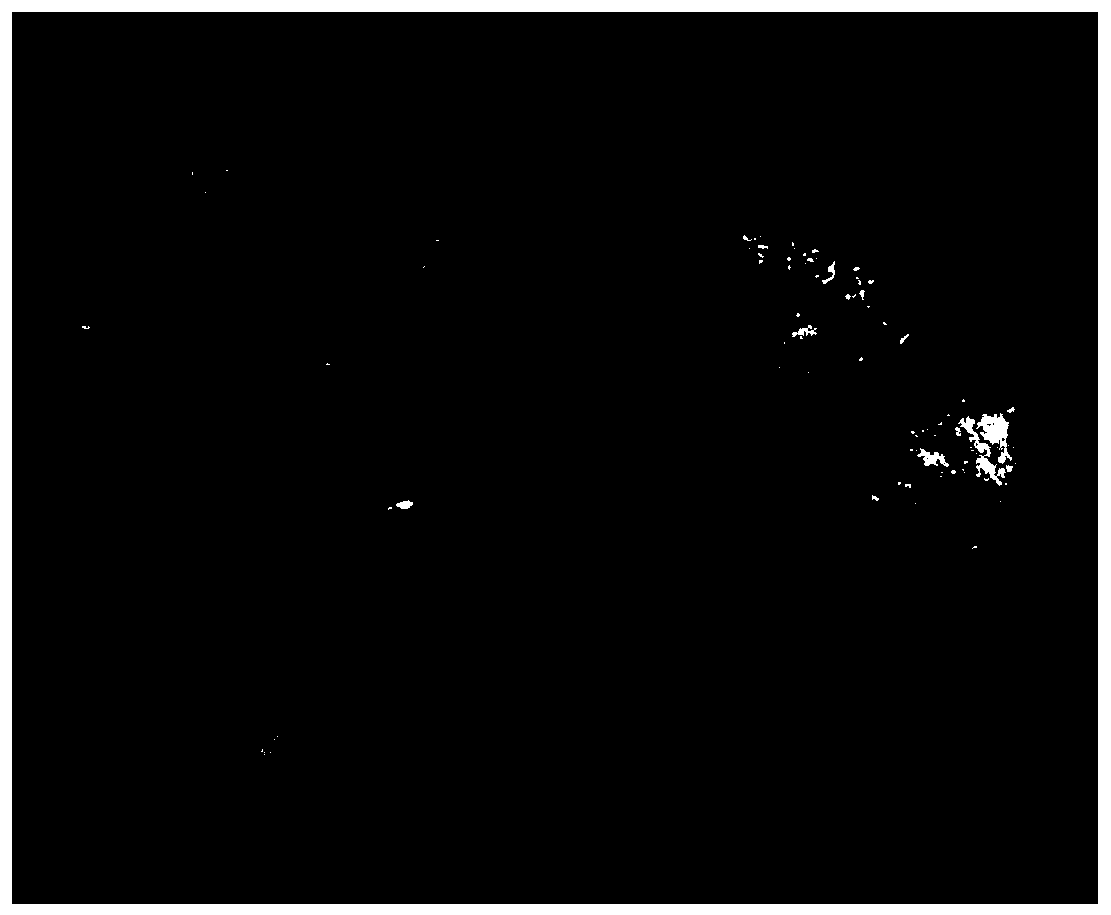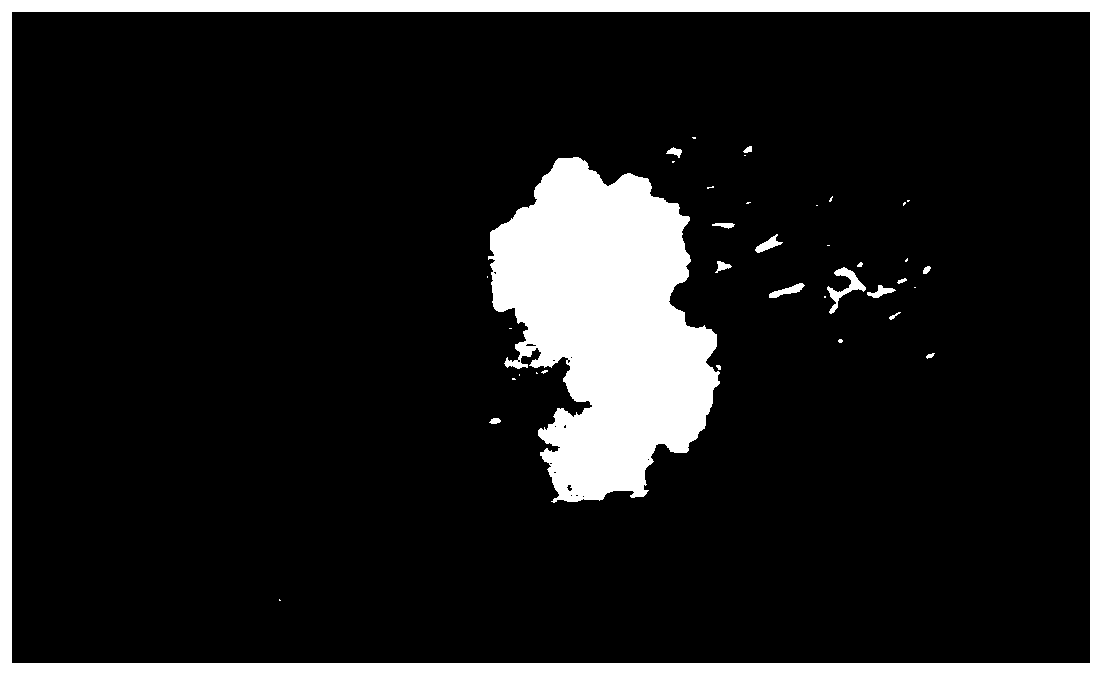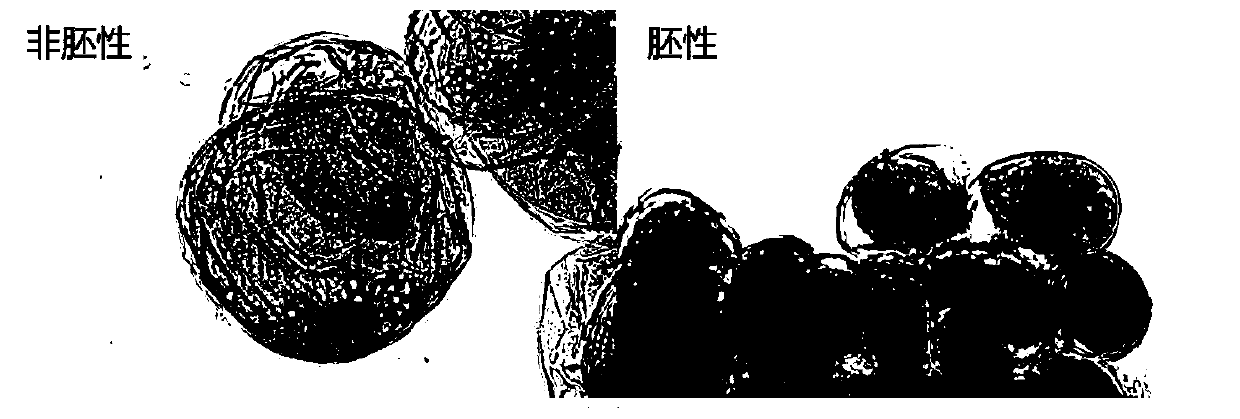Method for improving African agapanthus embryogenic cell subculture effects
A technology of embryogenic cells and Agapanthus, which is applied in the field of cell culture, can solve the problems of failing to take advantage of the somatic embryo system, reduce the uniformity of material development, and coarse embryogenic cell particles, so as to improve the effect of subculture, reduce competition, consistent effect
- Summary
- Abstract
- Description
- Claims
- Application Information
AI Technical Summary
Problems solved by technology
Method used
Image
Examples
Embodiment 1
[0047] A kind of method that present embodiment provides to improve the subculture effect of Agapanthus embryogenic cells, concrete steps are as follows:
[0048] (1) The material of the explants: during the flowering period in May to June, get the uncracked small flower buds of Agapanthus 4 to 5 years old, and carry out disinfection treatment on the aseptic operation table (first use 75% (v / v) ethanol to treat 50 ~70s, with ddH 2 Rinse with O for 3 to 5 times, then disinfect with 5% sodium hypochlorite for 5 to 7 minutes, then ddH 2 Rinse with O for 3 to 5 times, then treat with 75% ethanol for 50 to 70 seconds, and wash with ddH 2 O rinse 3 to 5 times). Drain the moisture on the surface of the small flower buds with sterile filter paper, then cut the small pedicel explants, and cut the small pedicel explants into small sections of 0.7 to 1.0 cm;
[0049] (2) Callus induction: Take 0.7-1.0 cm small pedicel explants and inoculate them in the callus induction medium in a fla...
Embodiment 2
[0057] A kind of method that present embodiment provides to improve the subculture effect of Agapanthus embryogenic cells, concrete steps are as follows:
[0058] (1) The material of the explants: during the flowering period in May to June, get the uncracked small flower buds of Agapanthus 4 to 5 years old, and carry out disinfection treatment on the aseptic operation table (first use 75% (v / v) ethanol to treat 50 ~70s, with ddH 2 Rinse with O for 3 to 5 times, then disinfect with 5% sodium hypochlorite for 5 to 7 minutes, then ddH 2 Rinse with O for 3 to 5 times, then treat with 75% ethanol for 50 to 70 seconds, and wash with ddH 2 O rinse 3 to 5 times). Drain the moisture on the surface of the small flower buds with sterile filter paper, then cut the small pedicel explants, and cut the small pedicel explants into small sections of 0.7 to 1.0 cm;
[0059] (2) Callus induction: Take 0.7-1.0 cm small pedicel explants and inoculate them in the callus induction medium in a fla...
Embodiment 3
[0067] A kind of method that present embodiment provides to improve the subculture effect of Agapanthus embryogenic cells, concrete steps are as follows:
[0068] (1) The material of the explants: during the flowering period in May to June, get the uncracked small flower buds of Agapanthus 4 to 5 years old, and carry out disinfection treatment on the aseptic operation table (first use 75% (v / v) ethanol to treat 50 ~70s, with ddH 2 Rinse with O for 3 to 5 times, then disinfect with 5% sodium hypochlorite for 5 to 7 minutes, then ddH 2 Rinse with O for 3 to 5 times, then treat with 75% ethanol for 50 to 70 seconds, and wash with ddH 2 O rinse 3 to 5 times). Drain the moisture on the surface of the small flower buds with sterile filter paper, then cut the small pedicel explants, and cut the small pedicel explants into small sections of 0.7 to 1.0 cm;
[0069] (2) Callus induction: Take 0.7-1.0 cm small pedicel explants and inoculate them in the callus induction medium in a fla...
PUM
 Login to View More
Login to View More Abstract
Description
Claims
Application Information
 Login to View More
Login to View More - R&D
- Intellectual Property
- Life Sciences
- Materials
- Tech Scout
- Unparalleled Data Quality
- Higher Quality Content
- 60% Fewer Hallucinations
Browse by: Latest US Patents, China's latest patents, Technical Efficacy Thesaurus, Application Domain, Technology Topic, Popular Technical Reports.
© 2025 PatSnap. All rights reserved.Legal|Privacy policy|Modern Slavery Act Transparency Statement|Sitemap|About US| Contact US: help@patsnap.com



